Books
The Working Couple’s Cookbook
The gimmick of this cookbook, published in 1971, was that it was striking a blow for Women's Lib by offering instructions for what both HIM and HER could do to prepare a meal.From a review by James Boyett (pictured below):
While most of the tasks the man is required to accomplish require only the knowledge of how to use a rolling pin or knife, I will warn you now that a couple of the recipes require the man to cook the meat — steak, pork chops.
One recipe, heaven forbid, asks the better half to only lay the table and then relax—while the man is required to open a couple of cans and then slave over a hot stove while "she" sips the fruit of the vine and relaxes.
More info: Awful Library Books
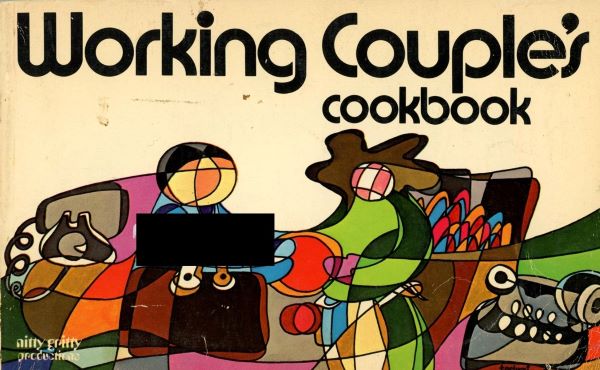
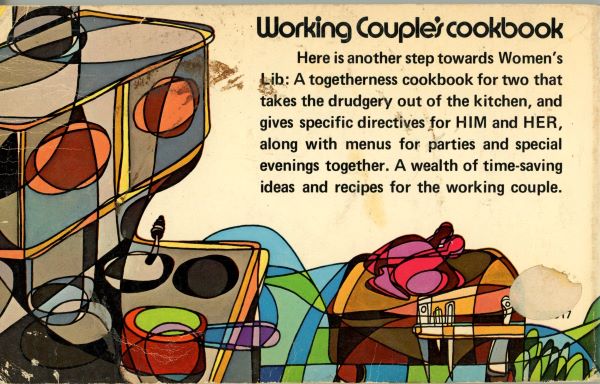
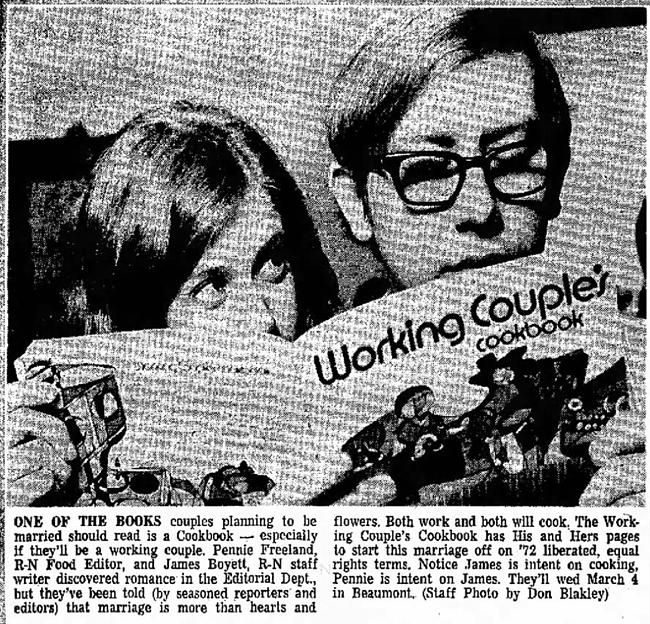
Abilene Reporter-News - Jan 23, 1972
Posted By: Alex - Thu Jul 16, 2020 -
Comments (4)
Category: Food, Cookbooks, Gender, Books, 1970s
The Quest For A Blonde Mistress
Publisher Emanuel Haldeman-Julius debuted his "little blue books" in 1919. These were cheaply bound, pocket-sized literary and academic works designed to make highbrow culture accessible to the masses. They sold for five cents each.Haldeman-Julius didn't do this for charity. He wanted to sell as many titles as possible, and to achieve this he would often alter the titles to make them more appealing to consumers. Basically, he would sex up the titles.
For example, he added the subtitle "The Quest for a Blonde Mistress" to Theophier Gautier’s novel The Fleece of Gold. Sales leapt from 6000 to 50,000 copies a year. (Apparently, 'quest for a blonde mistress' is an accurate description of the book's plot.)
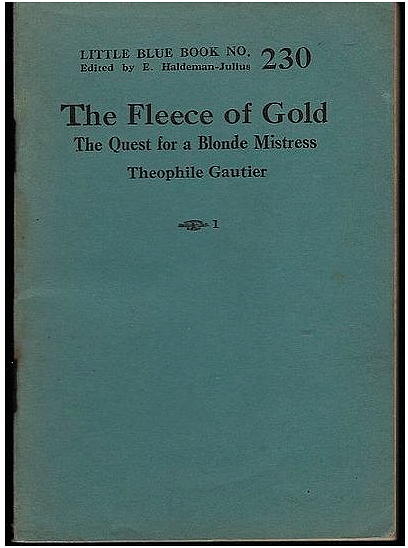
Other titles that benefitted from a title change:
• "The Tallow Ball" by Guy de Maupassant became "A French Prostitute's Sacrifice."
• None Beneath the King by José Zorrilla became None Beneath the King Shall Enjoy This Woman.
• Victor Hugo’s The King Amuses Himself became The Lustful King Enjoys Himself.
Haldeman-Julius didn't always make the titles more risque. Sometimes he emphasized self-improvement, and that also had a positive effect on sales. For example, sales of Thomas De Quincey’s Essay on Conversation jumped when it was renamed How To Improve Your Conversation. Similarly, Arthur Schopenhauer’s Art of Controversy became How to Argue Logically. And Dante and Other Waning Classics became Facts You Should Know About the Classics.
Haldeman-Julius was totally open, even boastful, about this strategy. From his book The First Hundred Million:
Posted By: Alex - Tue Jul 07, 2020 -
Comments (3)
Category: Literature, Books
Reusing Old Graves
Prompted by a concern that British cemeteries were running out of space, Professor Douglas Davies was commissioned to research public attitudes about reusing graves. The result was his book Reusing Old Graves, which became the 1995 winner of the Diagram Prize for oddest title of the year.More info from a review in the Ecclesiastical Law Journal:
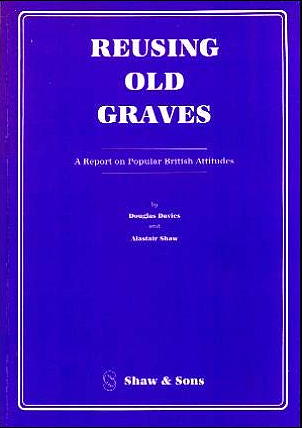
Posted By: Alex - Mon Jun 15, 2020 -
Comments (5)
Category: Death, Books
Perfume-O-Books
In 1960, Monarch Books announced the launch of Perfume-o-Books. These were books infused with perfume.They had plans to use a saddle-leather scent for westerns, floral odors for flower-arrangement books, and food scents for cookbooks.
All of which seemed logical. However, they decided to launch the line with three movie tie-in titles: "The Enemy General," by Dan Pepper, "The Stranglers of Bombay," by Stuart James, and "The Brides of Dracula," by Dean Owen. These three titles were each infused with a "Chanel 5 type perfume."
They seem like very odd titles to have been perfumed. And evidently the perfume didn't appreciably help sales, because no more perfume-o-book titles were ever printed.
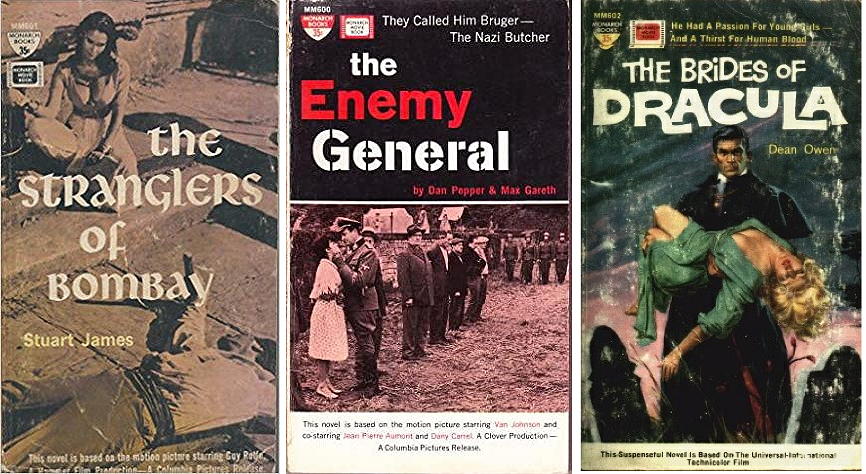
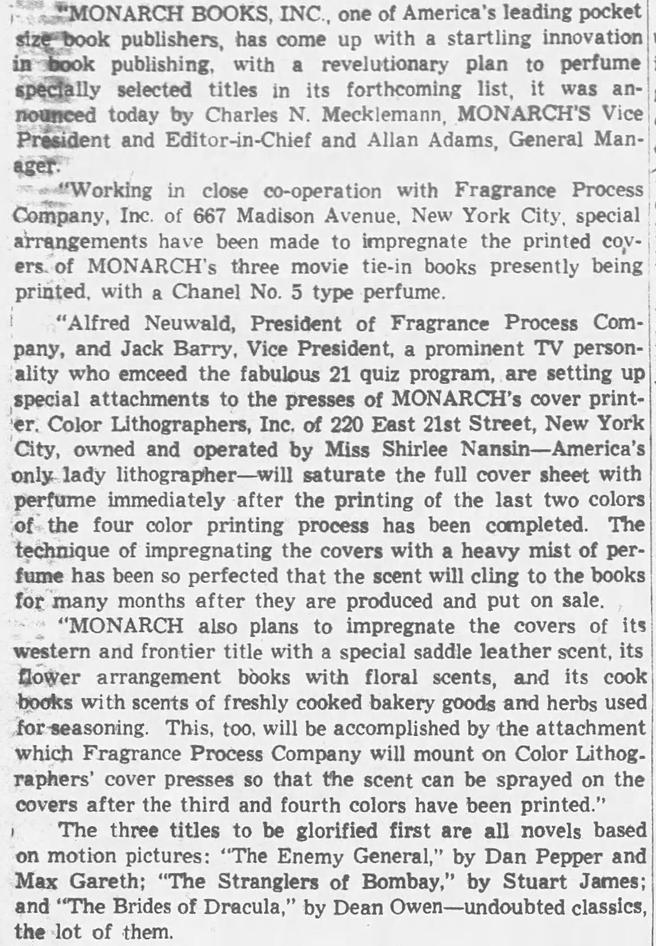
Richmond Times Dispatch - Apr 17, 1960
Posted By: Alex - Mon May 18, 2020 -
Comments (3)
Category: Books, 1960s, Perfume and Cologne and Other Scents
Richard Sala, RIP
I loved the comics made by Richard Sala, a truly unique talent. As one of my Facebook pals, he was always funny, kind and clever. Alas, he's gone now.Here a rare bit of animation from him--INVISIBLE HANDS, the first bit--one of his first big breaks leading to a wonderful career, cut short.
Posted By: Paul - Mon May 11, 2020 -
Comments (0)
Category: Death, Comics, Books, Cartoons, 1990s, Fictional Monsters
The Mills & Boon Motorway
Mills & Boon books are the British equivalent of Harlequin romances.Which is the setup for an odd fact, which sounded to me like an urban legend when I first came across it, but it turned out to be true. As you drive along the M6 Motorway in Britain, you're driving on copies of Mills & Boon romances, because 2.5 million of these books were used in the construction of the road.
According to BBC News:
Richard Beal, the company's project manager for the M6 Toll, said the books' absorbent qualities made them a vital ingredient in the construction of the country's first pay-as-you-go motorway.... for every mile of motorway approximately 45,000 books were needed.
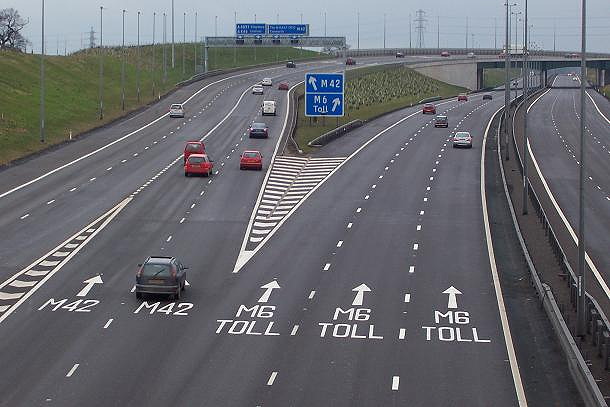
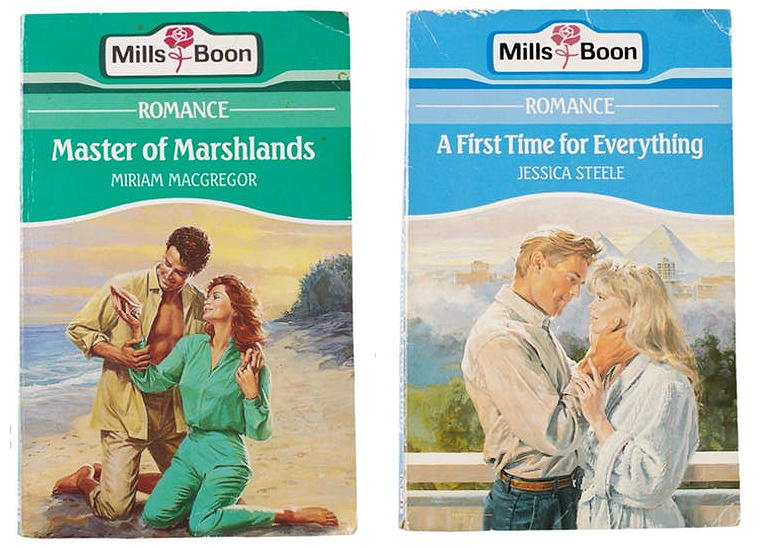
Posted By: Alex - Wed Apr 08, 2020 -
Comments (0)
Category: Highways, Roads, Streets and Traffic, Books
The Natural History of Nonsense
Published in 1947, THE NATURAL HISTORY OF NONSENSE remains as relevant today as ever.Read the whole volume here.
Some notion of its contents and approach seen below.
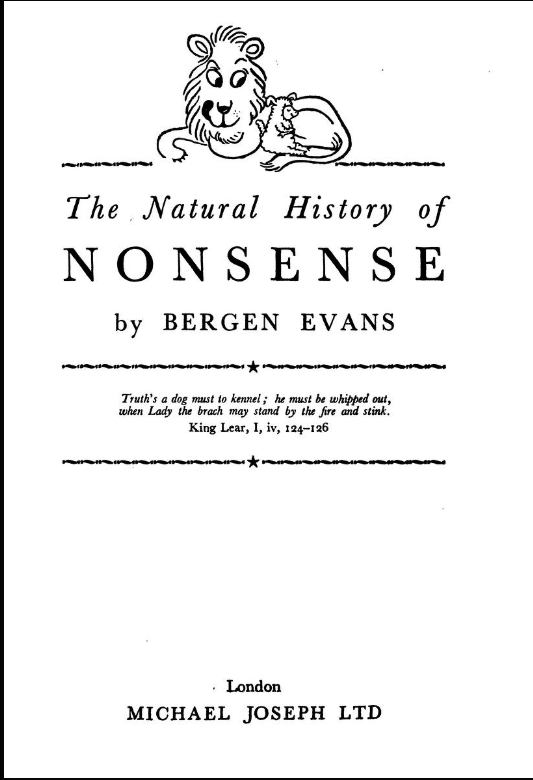
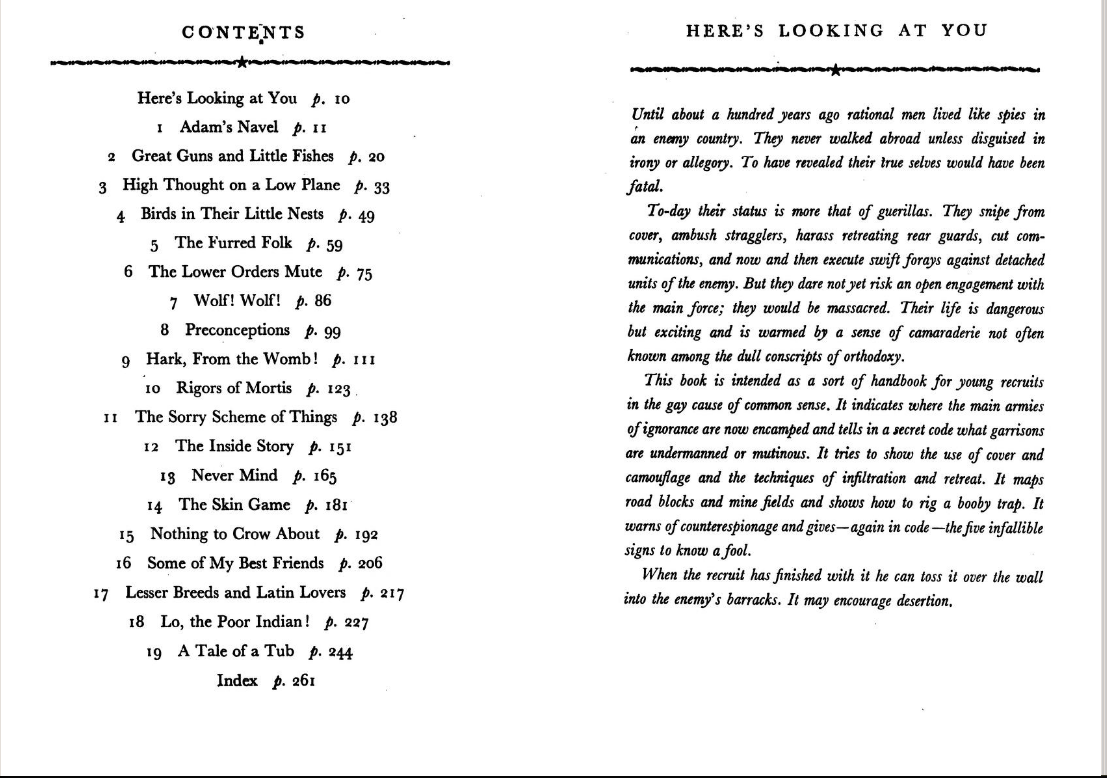

Posted By: Paul - Mon Mar 23, 2020 -
Comments (2)
Category: Skeptics, Debunkers, and Rationalists, Books, 1940s
Sing Along with Khrushchev Coloring Book
A few days ago, Paul posted about a Khrushchev coloring book authored by Jack Davis. Another Khrushchev coloring book was created in 1962 by the Hungarian cartoonist Victor Vashi with text by Ilona Fabian.I haven’t been able to find any photos or scans of it online. And according to Worldcat, it’s only held by two US libraries. So, it’s extremely obscure. However, its existence establishes Khrushchev coloring books as a tiny, but existing literary genre.
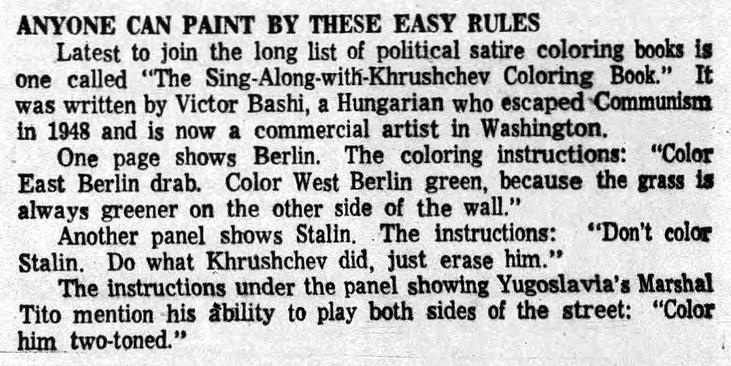
Knoxville News Sentinel - Jan 20, 1963
Some selections from the text ran in the Brooklyn Daily Eagle (Apr 18, 1963):
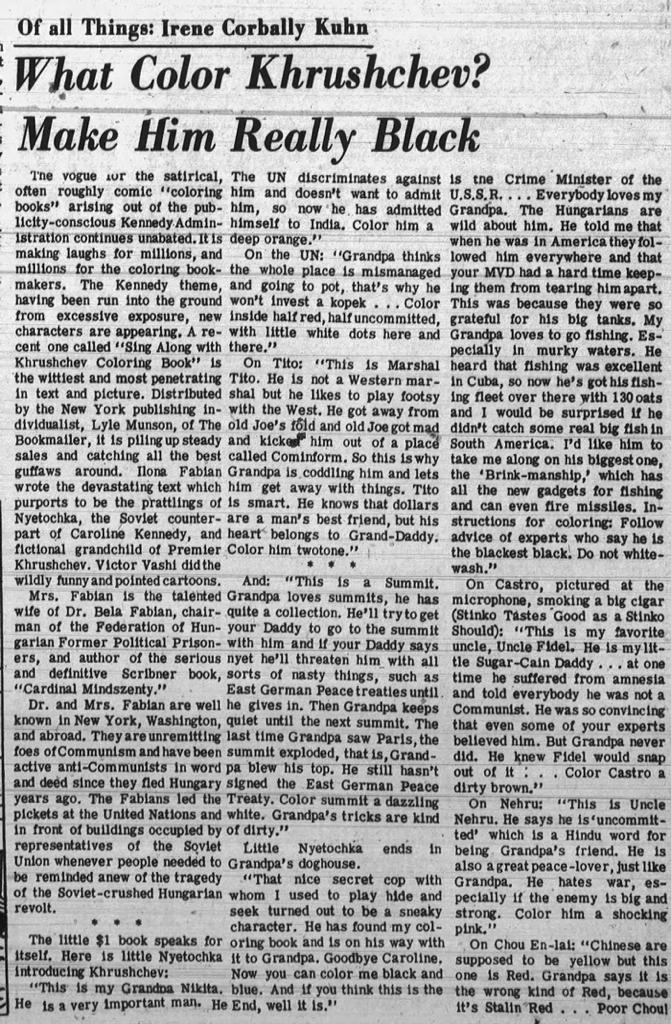
Posted By: Alex - Wed Feb 12, 2020 -
Comments (0)
Category: Art, Dictators, Tyrants and Other Harsh Rulers, Politics, Books, 1960s
Khrushchev’s Top Secret Coloring Book
Finally, some artwork that might amuse the Soviet dictator, from the great Jack Davis.Buy your copy through the link below.

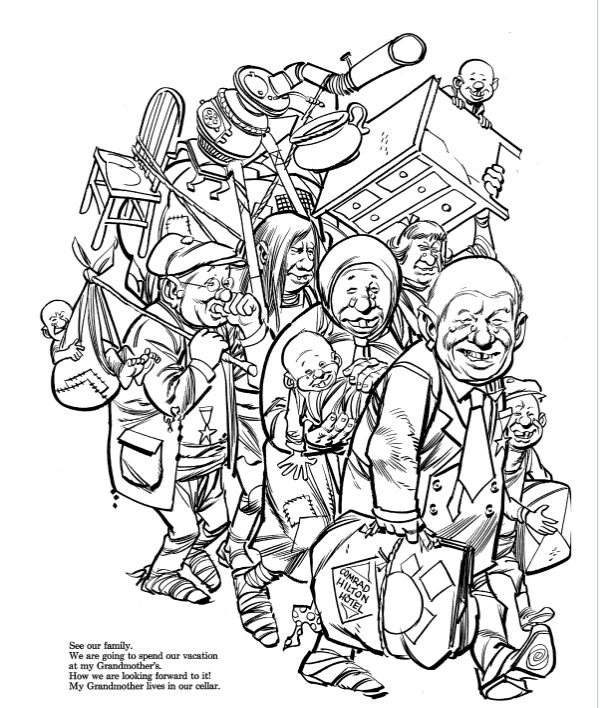
Posted By: Paul - Thu Jan 30, 2020 -
Comments (0)
Category: Art, Dictators, Tyrants and Other Harsh Rulers, Books, 1960s
Screwball! Comics
My pal Paul Tumey just released his magnum opus, a history of "screwball" comics. I'm reading my copy now, and it's great.If you go to the link, you get a PDF copy of one of his newsletters to sample what he's all about.
Order yours today!
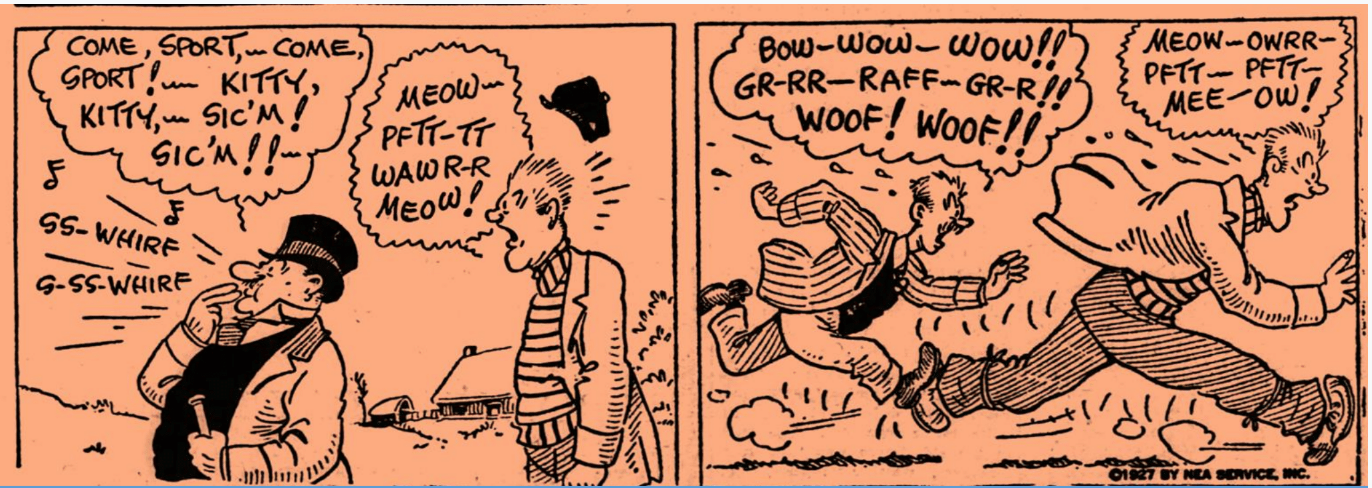
Posted By: Paul - Fri Jan 17, 2020 -
Comments (0)
Category: Humor, Comics, Books, Twentieth Century

| Who We Are |
|---|
| Alex Boese Alex is the creator and curator of the Museum of Hoaxes. He's also the author of various weird, non-fiction, science-themed books such as Elephants on Acid and Psychedelic Apes. Paul Di Filippo Paul has been paid to put weird ideas into fictional form for over thirty years, in his career as a noted science fiction writer. He has recently begun blogging on many curious topics with three fellow writers at The Inferior 4+1. Contact Us |




